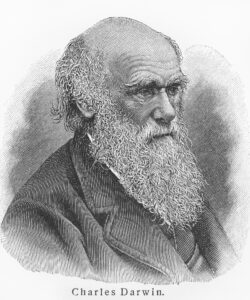By G. Lee Southard, PhD / July 15, 2019/Science and Faith
This following is an excerpt from the book To Know With Certainty.
Many of the fathers of modern-day science were Christians or at least believers in God. Many claimed that discovering the ways of God was the foundation for their research. The Catholic Church encouraged education and scientific understanding, with the Jesuits making significant scientific contributions. These scientists conducted foundational research without which we would not be where we are today. If there were scientists Hall of Fame they would be the first class inducted.
Nicholas Copernicus (1473-1543) studied for the priesthood. In opposition to Catholic dogma at the time that the sun revolved around the earth, geocentrism, he mathematically proposed that the sun, not the Earth, was the center of the solar system. This is called the heliocentric system. This is the system we recognize as the modern ordering of the planets in our solar system. Copernicus said “My goal is to try to find the truth in God’s majestic creation.”
Francis Bacon (1561-1627) was a philosopher known for establishing the scientific method of inquiry based on experimentation and inductive reasoning. He rejected atheism as being the result of a shallow philosophy. His goals were the discovery of truth, service to his country, and service to the church. He said, “Atheism is rather in the lip than in the heart of man.”
Galileo Galilei (1564-1642) was educated in a Jesuit monastery. He scientifically proved the Copernican theory, despite the church’s order against it. He was persecuted for his work and ultimately jailed, not for the work but for lying. Galileo has been called the “father of modern observational astronomy,” the “father of modern physics,” and the “father of modern science.” Galileo said, “God is known by nature in his divine works and by doctrine in His revealed word.”
-
- Johannes Kepler (1571-1630) was a sincere and pious Lutheran whose works on astronomy contain writings about how space and the heavenly bodies represent the Trinity. He was a brilliant mathematician and astronomer, did early work on light, and established the laws of planetary motion about the sun. He said, “I wanted to become a theologian. For a long time I was restless. Now, however, behold how through my effort God is being celebrated in astronomy.”
- Blaise Pascal (1623-1662) was a French mathematician, physicist, inventor, writer, and theologian. He published a treatise on the subject of projective geometry and established the foundation for probability theory. He was raised a Roman Catholic and in 1654 had a vision of God, which redirected his study from science to theology, including a published work on the defense of Christianity. He said, “Faith is different from proof; the latter is human, the former is a Gift from God.” Pascal’s last words were “May God never abandon me.”
- Isaac Newton (1642-1720) is considered by some to be the most influential scientist and mathematician of all time and was also the author of religious tracts. Scientifically he is remembered for the Newtonian laws of motion and universal gravitation. Newton said, “All created objects which represent order and life in the universe could happen only by the willing reasoning of its original creator whom I call the Lord God.”
- Robert Boyle (1791-1867) was the father of “Boyle’s Law” which applies to gases. He was a Protestant and promoted the Christian religion abroad, financing the publishing of the New Testament into Irish and Turkish. Boyle wrote against atheists in his day. He is considered one of the founders of modern chemistry. He said, “God would not have made the universe as it is unless He intended us to understand it.”
- Johannes Kepler (1571-1630) was a sincere and pious Lutheran whose works on astronomy contain writings about how space and the heavenly bodies represent the Trinity. He was a brilliant mathematician and astronomer, did early work on light, and established the laws of planetary motion about the sun. He said, “I wanted to become a theologian. For a long time I was restless. Now, however, behold how through my effort God is being celebrated in astronomy.”
Michael Faraday (1791-1867) was one of the greatest scientists. His work on electricity and magnetism revolutionized physics. He also had many discoveries in the field of chemistry. Computers and telephones are traceable to his discoveries. Faraday was a devout Christian and a member of the Sandemanian denomination, an offshoot of the Presbyterians that rejected the concept of state churches. Biographers note “a strong sense of the unity of God and nature pervaded Faraday’s life and work.”
Gregor Mendel (1822-1884) was an Austrian monk who created the science of genetics known as Mendelian inheritance. Mendel established many of the laws of heredity. From one of his many sermons he said “The seed of supernatural life, of sanctifying grace, cleanses from sin, so preparing the soul of man, and man must seek to preserve this life by his good works.”
William Kelvin (1824-1907) was an elder in the church of s Scotland and Chairman of the Christian Evidence Society. He helped lay the foundations of modern physics, contributing to the first and second laws of thermodynamics. Lord Kelvin is known for his calculation of “Absolute Zero” as minus 273.15 degrees. He said, “Let nobody be afraid of true freedom of thought. Let us be free in thought and criticism; but, with freedom, we are bound to come to the conclusion that science is not antagonistic to religion, but a help to it.
James Clerk Maxwell (1831-1879) is best known for formulating the theory of electromagnetic radiation. The Maxwell equations form the basis for this field. He was a strong Christian and student of the Bible who put his beliefs and the Bible to intellectual tests. Maxwell reasoned and predicted that the rings around Jupiter were particles, something not proved until the 1980s with the Voyager space missions. According to the Encyclopedia Britannica, “Maxwell is regarded by most modern physicists as the scientist of the 19th century who had the greatest influence on 20th century physics.” Maxwell said, “…. all the evil influences that I can trace have been internal and not external…I have the capacity of being more wicked than any example that man could set me, and that if I escape, it is only by God’s grace.”
Max Planck (1858-1947) is known for the origination of quantum theory, which won him the Nobel Prize in Physics in 1918, and for his contributions to theoretical physics. Max Planck said, “Religion and science demand for their foundation faith in God. . God stands for the former in the beginning, and for the latter at the end of the whole thinking. For the former, God represents the basis, for the latter—the crown of any reasoning concerning the world-view”
Albert Einstein (1879-1955) was one of the best-known names of the twentieth century. He was the father of the Theory of Relativity and the conversion of matter to energy (E=mc2). He did not believe in a personal God but recognized that the universe must have been created. Einstein once remarked to a young physicist, “I want to know how God created this world. I am not interested in this or that phenomenon, in the spectrum of this or that element. I want to know His thoughts, the rest are details.” One of his famous sayings was “Science without religion is lame, religion without science is blind.”
George Lemaitre (1894-1966) was a physicist, Roman Catholic priest, and the father of the Big Bang Theory on the creation of the universe. Lemaitre said, “Does the Church need Science? Certainly not! The Cross and the Gospel are enough. However, nothing that is human can be foreign to the Christian. How could the Church not be interested in the most noble of all strictly human occupations, namely the search for truth?”
Wernher von Braun (1912-1977) developed the rockets that launched America’s first space satellite and the first series of moon missions that included the Saturn V. Von Braun said, “My experiences with science led me to God. They challenge science to prove the existence of God. But must we really light a candle to see the sun?”
Francis Collins (1950- ) is an American physician and geneticist noted for his research in genetics and ultimately leadership of the Human Genome Project. He is currently director of the National Institutes of Health (NIH) and author of the book The Language of God: A Scientist Presents Evidence for Belief. Collins believes that Christianity can be reconciled with evolution and science. Collins said. The God of the Bible is also the God of the genome. He can be worshipped in the cathedral or in the laboratory. His creation is majestic, awesome, intricate and beautiful – and it cannot be at war with itself. Only we imperfect humans can start such battles. And only we can end them.”
We can conclude that Christians can be scientists and vice versa. This should encourage our youth in the pursuit of science as a career. We should all be encouraged that science and the Christian faith are compatible if we would only understand that God is at the basis for both.




